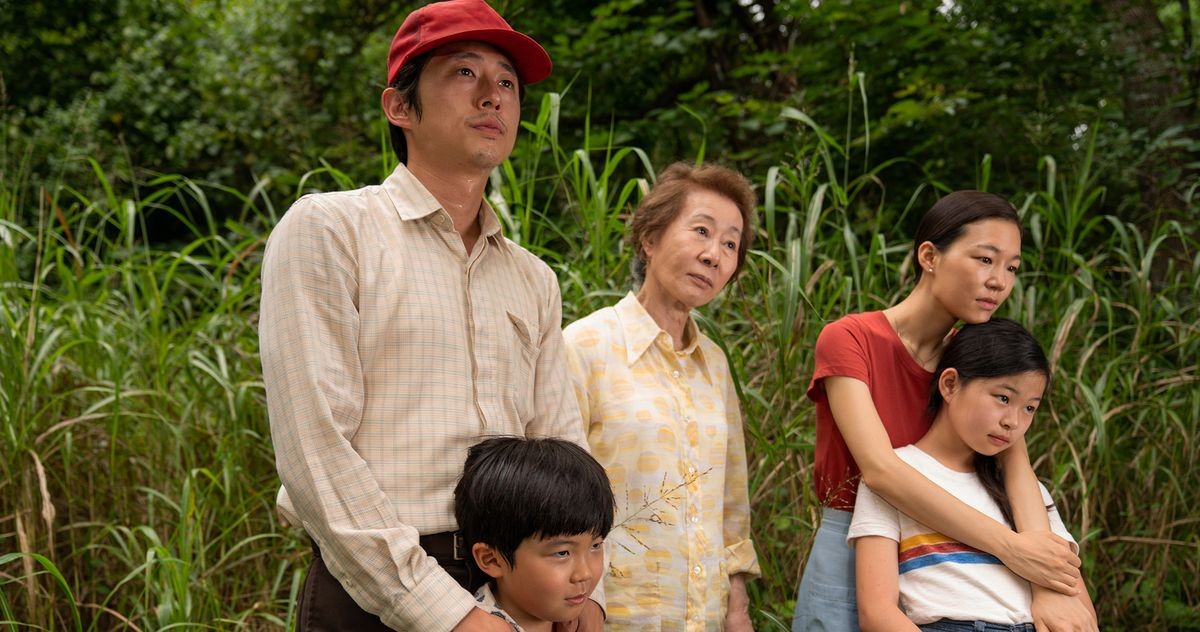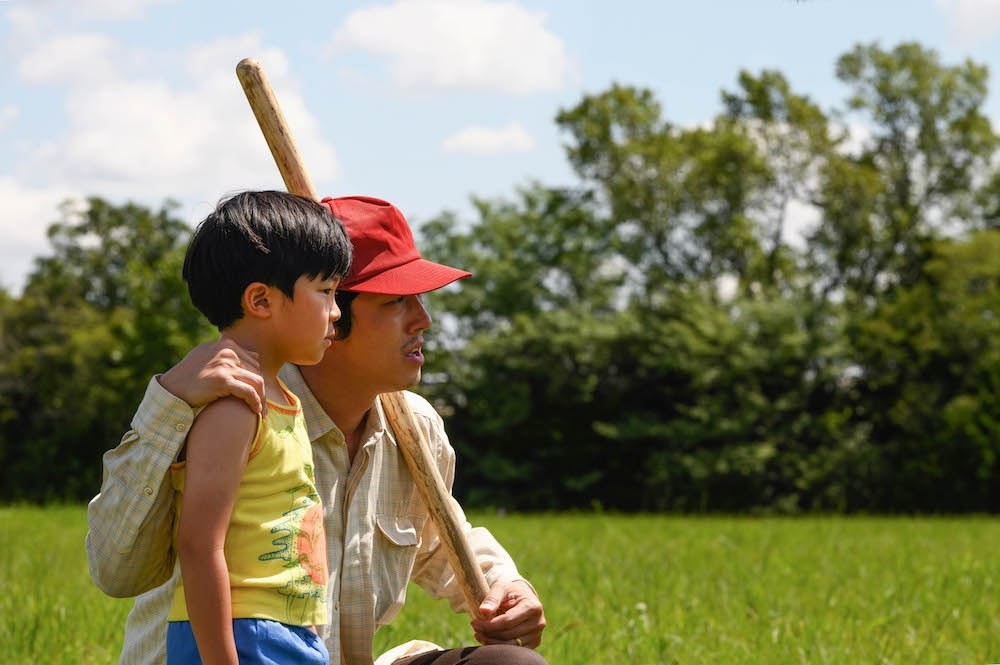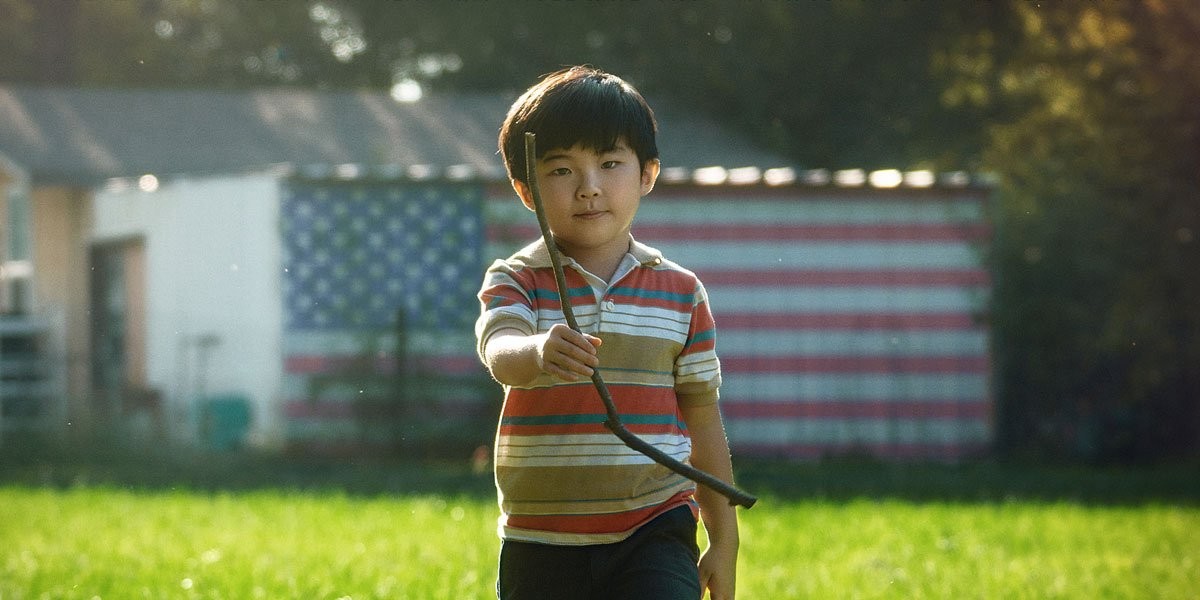
The Yi family: Steven Yeun, Alan Kim, Youn Yuh-jung, Han Ye-ri, and Noel Kate Cho in Minari.
Jacob Yi (Steven Yeun) is a chick sexer. It’s a profession that’s less sexy than it sounds. Chicks look the same whether they’re male or female. The only way to tell which one is which is to take a close look at their cloacas. So Jacob looks at chicken butts all day long. But he’s really good at it. His poultry sexing skills are met with amazement and praise when he moves from the West Coast to Arkansas. Apparently, California sexers do it better.
But Jacob didn’t drag his family halfway across the country just to keep sexing poultry in the middle of nowhere. He used their modest savings to buy a plot of land and start a farm of his own. It’s the classic Jeffersonian dream of becoming a yeoman farmer.

David and Jacob work the land.
The complication is, Jacob, his wife Monica (Han Ye-ri), and two small children David (Alan Kim) and Anne (Noel Kate Cho) are immigrants from Korea, and rural Arkansas in the early 1980s is not the most open-minded place. Plus, the family has only the most basic knowledge of agriculture. Jacob is optimistic and willing to grit and grind, but he soon discovers that might not be enough to make it in America.
Writer/director Lee Isaac Chung’s film Minari is at least partially autobiographical—he really did grow up Korean in rural Washington County, Arkansas, in the 1980s. The title refers to a hearty plant used in Asian cooking. When Jacob’s elderly mother Soon-ja (Youn Yuh-jung) makes the long trip from Korea to Arkansas to live with the family, she brings some minari to plant by the creek that runs through their property. It becomes a symbol of the family’s persistence, and the mixing of cultures their little farm represents.
The Yi family are largely baffled by the Arkansans they encounter, such as Paul (Will Patton), whose Christian devotion borders on religious mania. Fitting in is hard, prejudice is an ever-present specter, but most of the problems the Yi family faces will be familiar to anyone who has seen an episode of The Waltons. Wells run dry, barns catch fire, and the price of produce is never high enough for the farm to run in the black.

But every time the story threatens to run into treacle territory, Chung pulls it back with a wry joke or unselfconsciously goofy moment. Micromastery of tone is the director’s greatest skill, and Steven Yeun is his dependable vessel. He helps you feel each one of Jacob’s small triumphs and setbacks, and the would-be farmer’s struggle to present a confident face to his family as he battles secret doubt. Also excellent is young Alan Kim as David, who is the film’s real protagonist. The tough love chemistry between him and his feisty grandmother would be difficult for an adult actor to pull off.
The stakes in Minari are refreshingly low. No one is saving the world; they’re just trying to keep a marriage together and food on the table. Chung’s film will remind you that’s all you need to make a good story.
Minari: The Asian Immigrant Experience in the South